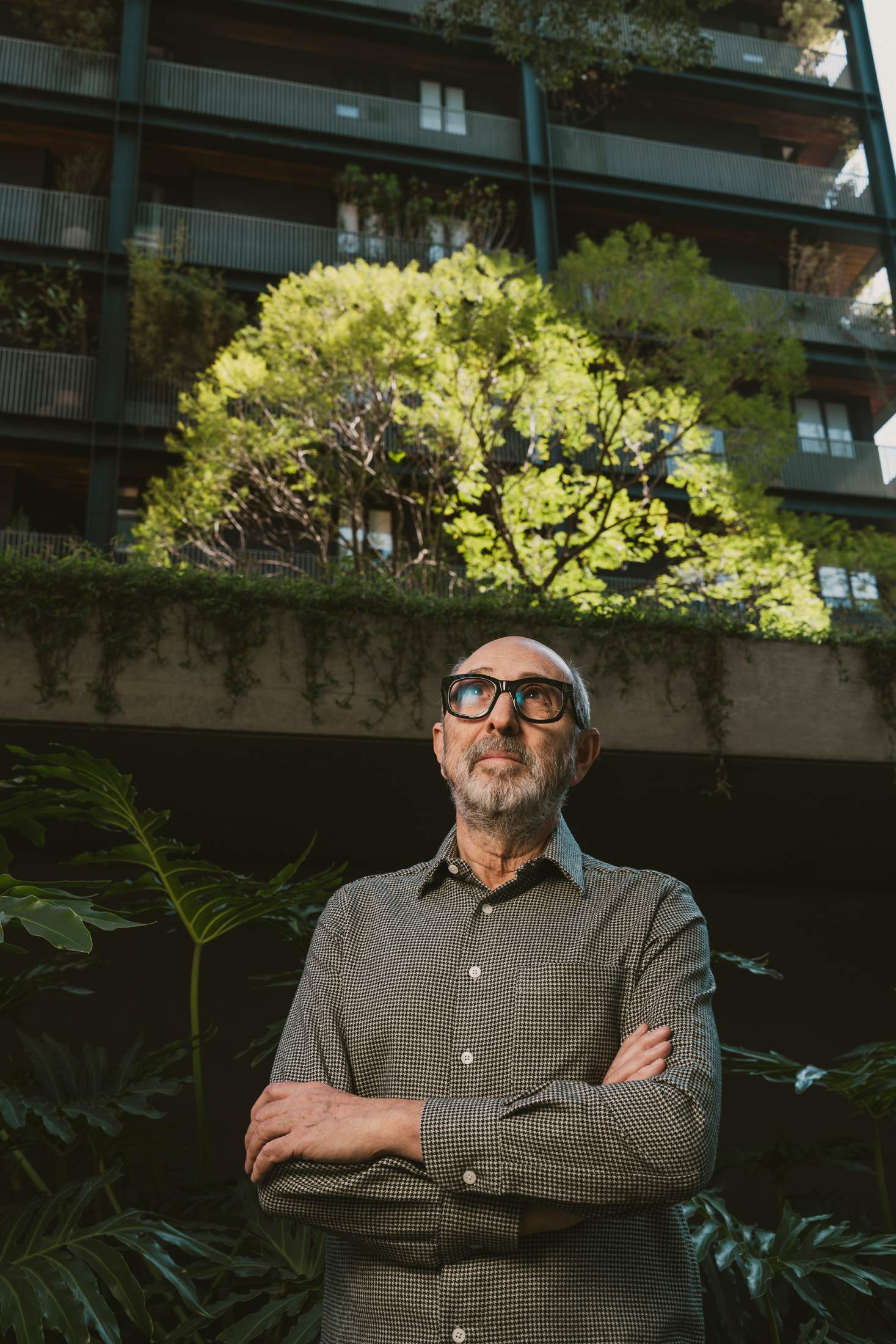The view from: Isay Weinfeld / São Paulo
Another storey
From making short films to becoming friends with Radiohead, architect Isay Weinfeld says that there’s more to life than the blueprint.
“I don’t find any inspiration in architecture at all,” says Isay Weinfeld, reclining into an armchair with a smile. “It’s something that I’ve been practising for the past 50 years but it’s not the most important thing in my life.”

The ebullient, septuagenarian Brazilian architect is talking to monocle in London, where he’s working on the renovation of a heritage building for Brazilian hotel group Fasano. But, despite being in town to discuss this work and his approach to architecture, he first wants to talk about his favourite films. “Playtime by Jacques Tati is the best film of all time,” he says, adding that Federico Fellini, Kantemir Balagov and Yorgos Lanthimos are among his favourite directors. “I am a very strong consumer of movies. But music is also a big passion of my life – theatre, dance, art and fashion too. And one of the strongest things about myself is an appreciation of humour.”
For one of Brazil’s most celebrated contemporary architects, whose work includes the Edificio Oito, a verdant residential building in São Paulo, the Jardim on New York’s High Line and Rio de Janeiro’s Havaianas shop, it might come as a surprise to hear that his discipline of choice is not his first love. But he has always had a restless creative instinct. While studying architecture at São Paulo’s Universidade Presbiteriana Mackenzie in the mid-1970s he began making short films, eventually winning prizes at festivals in Gramado, Brazil, and Huelva, Spain. A passion for music has seen him befriend artists such as Radiohead’s Thom Yorke and has resulted in him designing sets for concerts and theatrical performances. More recently he has completed a degree in creative writing and developed a loyal social media following that regularly view his videos, which humorously highlight urban issues in São Paulo.
The diverse set of interests might explain his approach to architecture, which is reflected in a portfolio that includes residences, discothèques, restaurants, hotels, office buildings and cultural centres. It’s a body of work that is as varied in typology and style. “You have to look for new solutions that will surprise you as a designer,” says Weinfeld. “Then you can surprise people.” It’s a refreshing sentiment that’s pertinent given the number of architecture studios that have developed signature styles, which are then rolled out in cities across the globe. “I always want to do something new in my work; I don’t want to have a formula and repeat myself,” he adds before doubling down with, appropriately, a cinematic analogy. “Directors such as Woody Allen, who is one of my favourites, have been doing the same films for their whole life. Then there are the likes of Stanley Kubrick, who has done many genres of film – historical, war, science-fiction – where everything is completely different. I don’t want to compare myself to him but that’s the approach to work that I enjoy.”
When pressed on whether the architecture industry should step out of its comfort zone, Weinfeld is keen to point out that this is simply his personal preference. He is, however, eager to point out that humility still remains an essential architectural building block that should be the foundation of all practice. “Architecture, for me, is about taking out the ego, respecting the clients and the site,” he says. “It’s not about speaking louder to show that you’re important.” He stresses that architecture is a service industry, where practitioners shouldn’t be treated as deities. It’s an outlook that, perhaps, has been cultivated by Weinfeld’s manifold creative endeavours and where a good life is about more than simply making a nice building. “Architecture is a funnel for all my interests,” he says. “I don’t take myself seriously... but I do my work in a very serious way.” —
The CV
1952: Born to Polish immigrants in São Paulo
1973: Establishes his namesake design studio while still a student
1974: Completes first short film in partnership with architect Márcio Kogan
1975: Graduates with a degree in architecture from São Paulo’s Universidade Presbiteriana Mackenzie
1983: Wins award at film festivals in Brazil
1998: Finishes the Casa Tijucopava residence in Guarujá, Brazil
2003: Completes first hotel for the Fasano group in Brazil
2009: Wins Mipim AR Future Projects Awards for his 360º Building residential project in São Paulo
2020: Graduates with a degree in creative writing from São Paulo’s Instituto Vera Cruz


